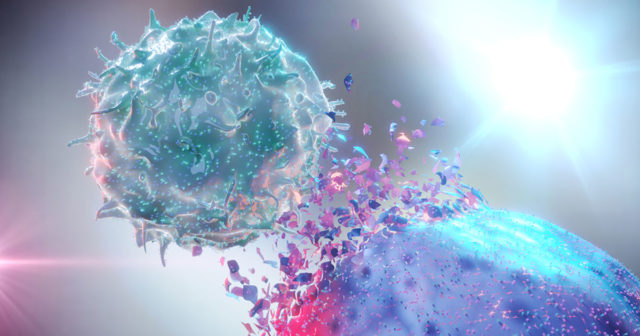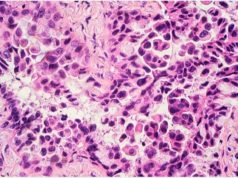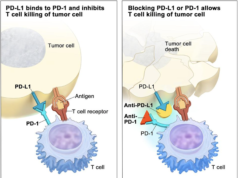In a published study, found in Nature Genetics, researchers discovered that tumors with more mutations had a better outcome, if treated with immunotherapy.
The “Tumor mutational load predicts survival after immunotherapy across multiple cancer types” studied the data acquired from approximately 1,660 patients with metastatic cancer, who received inhibitor therapy against a patient pool of 5,000, that were untreated. Many immune checkpoint inhibitor therapies, which are created to allow the body’s natural immune system to recognized and attack cancerous cells as foreign organism, are being used regularly to treat a number of cancers. Such cancers include non-small cell lung, renal cell, bladder, along with head and neck squamous cell cancers. The 6 recognized immunotherapy treatment drugs include: TelCentris (atezolizumab), Bavencio (avelumab), Imfinzi(durvalumab), Hervey (ipilimumab), OPDIVO (nivolumab) and Keytruda (pembrolizumab).
The immunotherapy study produced results that suggest patients with a higher tumor mutation burden, also known as TMB, reacted with a greater outcome of survival with inhibitor therapy, than patients with a lower tumor mutation. However, the same survival rate could not be found in patients with a high TMB, that were not administered immunotherapy. These results are parallel to the inherent functions of the body’s immune system.
The immune system serves as a protector. It protects and guards the body from bacteria, fungi, viruses and other toxins. As part of a negative-tumor cells, benign or malignant-these abnormal bodies tend to crawl through the system undetected. This provides an understanding as to why the study shows an increased survival rate when more mutations are present in the body. The more mutated cells the more likely the immune system will recognize it as foreign. According to the tested hypothesis, this will lead to an increased elimination of those abnormal cells, intensified dramatically with the introduction of immunotherapy.
Although, patients have had great success with inhibitor therapy, some side effects have been shown to cause damage to the kidneys and lungs. This has resulted in researchers allocating a larger amount of attention to patient response and the challenges specifically in determining the exact definition of “high” in high mutation burdens and “low” in low mutation burdens. These difficulties surround the unpredictable behaviors of cancer in the human body.
With the ever growing and widening net, technology plays a key role in determining definitions and standards. Researchers and scientists will have to create a categorical method for identifying tumors, as either entire tumor genome sequence or a part. Because the current method can result in ambiguous findings, researchers will continue the search to find a more concise and effective methodology of pairing individual patient cancer to immunotherapy.




























